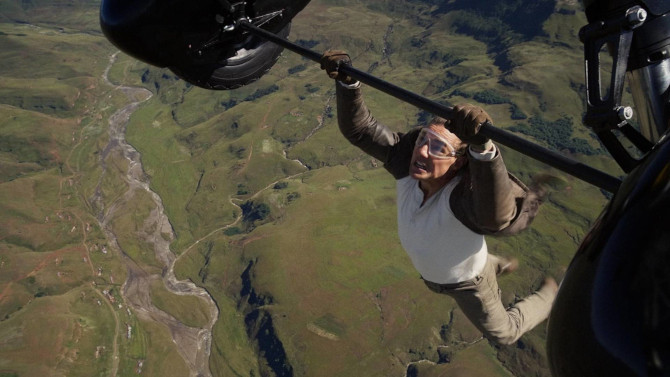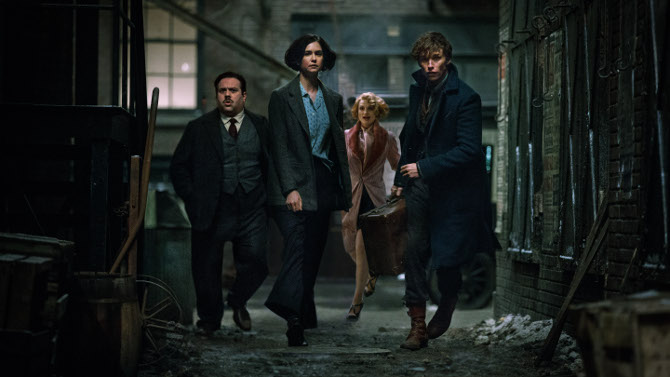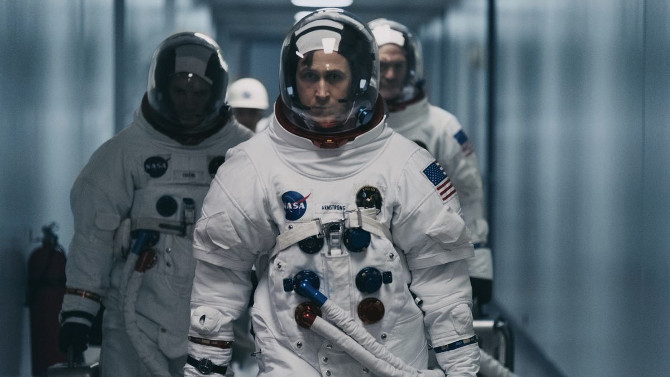
An Impossible Mission
How do you wrap up a franchise like Mission: Impossible? That is, if this even is the final installment... as they’ve made it sound (while at the same time, stars not named ‘Tom Cruise’ pipe up and suggest that might not be so). It has been twenty-nine years, with different writers and visionary directors – from twisty Brian De Palma and the action hair stylings of John Woo, to the lens flares of J.J. Abrams and animation expert Brad Bird, it was only about ten years ago that the franchise decided to opt for The Usual Suspects scribe Christopher McQuarrie for the final four. To return to that opening question once more, you could end with a Sopranos’ style cliffhanger, simply make another entertaining movie like the many before – like Everybody Loves Raymond did it with its final episode, or try to tie everything up in a neat little bow by bringing everything together as the Daniel Craig era did with James Bond. Well, it is definitely more along the lines of the latter example, with some distinct differences.
-

Beastie Boy
Fantastic Beasts and Where to Find ThemNovember 16, 2018Let’s face it. . . so much of a film is its characters – the way they are written, their likeability (or lack thereof), and, just as vitally, who is cast in those roles. If we can’t root for the heroes, hiss at the villains, be wary of those in the grey milieu, or find ourselves somewhere in that flawed antihero, then we cannot truly be emotionally invested in the narrative – no matter how majestic the whizzes and bangs are. So, like a large portion of my generation, I fell under the spell of the richly woven personas found in the Harry Potter novels. . . and later, the films. Soon, literature meshed with the visual world, and when people referenced someone like Severus Snape or Sirius Black, it was nearly impossible not to think of the late great Alan Rickman and the stellar Gary Oldman, respectively – the entire franchise a masterclass in casting.
-

Reach For the Moon
First ManOctober 14, 2018Could First Man finally be the film that brings Ryan Gosling that elusive Oscar? With two nods (for La La Land and Half Nelson), and countless other memorable roles that could have earned him more chances (think Lars and the Real Girl, Blue Valentine, Drive, and The Ides of March), Gosling has re-teamed, in short order I might add, with his La La Land writer/director, Damien Chazelle, for another perfect vehicle (one might call it a rocket) to showcase his acting chops – a fascinating Neil Armstrong biopic. Chazelle’s first directorial effort not to revolve around music (also, the screenplay does not come from him, rather Josh Singer), instead, he shoots for the moon. Gosling plays Armstrong, a man who has his own personal troubles. Married to Janet (Claire Foy), they have two children. . . one of which has cancer.
-

Something VVicked This Way Comes
The VVitchOctober 7, 2018“Double, double toil and trouble; Fire burn and caldron bubble. . .” – witches, constant fodder for horror films, but one feature that takes a more sophisticated look at the boiled, pointed black hat wearing creatures, is first time writer/director Robert Eggers’ 2015 motion picture The VVitch: A New-England Folktale – remind me never to book a vacation to rural New England. Set in seventeenth century America, a puritanical Calvinist family has been banished from the plantation they once called home (due to religious differences). . . heading out into the wild unknown (a beautiful voyeuristic shot depicts the children leaving the bustle of the growing town), they look for some solace on their new plot of land, an open piece of property surrounded by a dark, brooding forest. More of a mood piece than a horror film. . . Eggers painstakingly recreates what life would be like in the lonesome location – the senses coming alive; you can feel the roughness of the carriage ride, see the sullen seclusion and ominously dark home life, smell the animals in the nearby barn, endure the weight of their clothing, suffer the same starvation they struggle with as their crops are destroyed by rot.
-

Mission: Impossibly Possible
Mission: Impossible - FalloutJuly 31, 2018Oh, how time flies. . . twenty two years ago, Ethan Hunt (Tom Cruise) was outsmarting many a villain, one of which was Max (Vanessa Redgrave) – a woman who was a British arms dealer. . . now, in 2018's Mission: Impossible – Fallout, it is implied that the American spy is dealing with that original foe’s daughter, the White Widow (Vanessa Kirby). It is a signal of a franchise that, for the most part, has done things right. . . each movie (other than the woeful second effort), finding a quality mix of action, adventure, spycraft and intrigue (all while developing an entertaining story that combines outrageous, authentically shot stunts that somehow outdo the previous film’s seemingly unbeatable sequences), while also highlighting the longevity of a successful franchise and career (Tom Cruise now only a year younger than Jon Voight was in the original movie).
-

Going Rogue
Mission: Impossible - Rogue NationJuly 27, 2018I’ve said it once, and I’ll say it again. . . Tom Cruise is the reincarnation of several silent film stars. Think Buster Keaton – the man willing to jump, fall, slide and put his life on the line for his beloved fans (the front of a house almost crushing him – miraculously finding his way through the upstairs window thanks to a perfectly placed nail on the ground). . . or Harold Lloyd, dangling from a breaking clock eight stories high. . . also Douglas Fairbanks Sr., who we see falling down a ship’s sail with only his dagger jammed into the fabric to control the drop. . . as well as the countless gags performed by the magical Charlie Chaplin. With Mission: Impossible – Fallout being released today (the sixth film in the jaw dropping franchise, I thought it would be a prudent idea to revisit the 2015 fifth feature, Mission: Impossible – Rogue Nation). Opening with a death-defying stunt which has Ethan Hunt (Tom Cruise) dangling from the exterior of a plane taking off, it is a perfect example of what I am taking about above. Completely real, you are actually seeing the actor take off (it took eight tries to get everything perfect), and, each time they reached an incredible five thousand feet. He had to wear special contact lenses, as a speck of dust in the eye would have blinded him, whilst also helping him keep his eyes open.
-

Odds Against You? Need Help?
The EqualizerJuly 20, 2018With its sequel being released today, I thought this was the perfect time to look back at 2014's The Equalizer – the first time the director/actor duo of Antoine Fuqua and Denzel Washington re-teamed since their impressive 2001 effort Training Day (they have since filmed The Magnificent Seven and The Equalizer 2 together). Loosely based upon the 1980s television series of the same name (starring Edward Woodward), Denzel Washington steps into the role of Robert McCall. . . a lonely, quiet and highly OCD man living in Boston. . . who is clearly low on sleep – as he spends his evenings at an all-night diner reading classic literature. During his days, he works at a big box hardware store, a semblance of a bland, repetitive life (his mind often lingers on the past, a complicated history of regret and loss). . . his fellow employees constantly guess what his former job was. . . McCall claims he was a former Pip (as in Gladys Knight & The Pips), showing off his dance moves as the much younger employees look up the reference.
